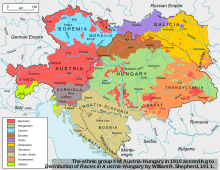It didn't take much to start a world war. Today it is as if the Korean War never ended. Because there was never a peace agreement that took place between NOrth and South Korea. So, in a sense this war has continued unabated since around 1950 (at least in the minds of the North and South Koreans. So, the rhetoric is a continuation now with America and South Korea versus North Korea which is basically exactly the same as the rhetoric in 1950.
begin quote from: Sarajevo assassination
Sarajevo assassination
Main article: Assassination of Archduke Franz Ferdinand of Austria
This picture is usually associated with the arrest of Gavrilo Princip, although some[28][29] believe it depicts Ferdinand Behr, a bystander.
About an hour later, when Ferdinand was returning from a visit at the Sarajevo Hospital with those wounded in the assassination attempt, the convoy took a wrong turn into a street where, by coincidence, Princip stood. With a pistol, Princip shot and killed Ferdinand and his wife Sophie. The reaction among the people in Austria was mild, almost indifferent. As historian Zbyněk Zeman later wrote, "the event almost failed to make any impression whatsoever. On Sunday and Monday (28 and 29 June), the crowds in Vienna listened to music and drank wine, as if nothing had happened.".[30][31] Nevertheless, the political impact of the murder of the heir to the throne was significant and has been described as a "9/11 effect, a terrorist event charged with historic meaning, transforming the political chemistry in Vienna.[32] And although they were not personally close, the Emperor Franz Joseph was profoundly shocked and upset.
The Austro-Hungarian authorities encouraged the subsequent anti-Serb riots in Sarajevo, in which Bosnian Croats and Bosniaks killed two Bosnian Serbs and damaged numerous Serb-owned buildings.[33][34] Violent actions against ethnic Serbs were also organized outside Sarajevo, in other cities in Austro-Hungarian-controlled Bosnia and Herzegovina, Croatia and Slovenia. Austro-Hungarian authorities in Bosnia and Herzegovina imprisoned and extradited approximately 5,500 prominent Serbs, 700 to 2,200 of whom died in prison. A further 460 Serbs were sentenced to death. A predominantly Bosniak special militia known as the Schutzkorps was established and carried out the persecution of Serbs.[35][36][37][38]
July Crisis
Main article: July Crisis
Crowds on the streets in the aftermath of the anti-Serb riots in Sarajevo, 29 June 1914
Ethno-linguistic map of Austria-Hungary, 1910. Bosnia-Herzegovina was annexed in 1908.
On 25 July, Russia, in support of its Serb protégé, unilaterally declared – outside of the conciliation procedure provided by the Franco-Russian military agreements – partial mobilization against Austria-Hungary. On the 30th, Russia ordered general mobilization against Germany. German Chancellor Bethmann-Hollweg waited until the 31st for an appropriate response, when Germany declared a "state of danger of war." Kaiser Wilhelm II asked his cousin, Tsar Nicolas II, to suspend the Russian general mobilization. When he refused, Germany issued an ultimatum demanding its mobilization be stopped, and a commitment not to support Serbia. Another was sent to France, asking her not to support Russia if it were to come to the defence of Serbia. On 1 August, after the Russian response, Germany mobilized and declared war on Russia. This also led to the general mobilization in Austria-Hungary on 4 August.
The German government issued demands to France that it remain neutral as they had to decide which deployment plan to implement, it being difficult if not impossible to change the deployment whilst it was underway. The modified German Schlieffen Plan, Aufmarsch II West, would deploy 80% of the army in the west, and Aufmarsch I Ost and Aufmarsch II Ost would deploy 60% in the west and 40% in the east as this was the maximum that the East Prussian railway infrastructure could carry. The French did not respond, but sent a mixed message by ordering their troops to withdraw 10 km (6 mi) from the border to avoid any incidents, and at the same time ordered the mobilisation of her reserves. Germany responded by mobilising its own reserves and implementing Aufmarsch II West. On 1 August Wilhelm ordered General Moltke to "march the whole of the … army to the East" after he had been wrongly informed that the British would remain neutral as long as France was not attacked. The General convinced the Kaiser that improvising the redeployment of a million men was unthinkable and that making it possible for the French to attack the Germans "in the rear" might prove disastrous. Yet Wilhelm insisted that the German army should not march into Luxembourg until he received a telegram sent by his cousin George VI, who made it clear that there had been a misunderstanding. Eventually the Kaiser told Molkte, "Now you can do what you want."[41][42] Germany attacked Luxembourg on 2 August, and on 3 August declared war on France. On 4 August, after Belgium refused to permit German troops to cross its borders into France, Germany declared war on Belgium as well.[43][44][45] Britain declared war on Germany at 19:00 UTC on 4 August 1914 (effective from 11 pm), following an "unsatisfactory reply" to the British ultimatum that Belgium must be kept neutral.[46]



No comments:
Post a Comment